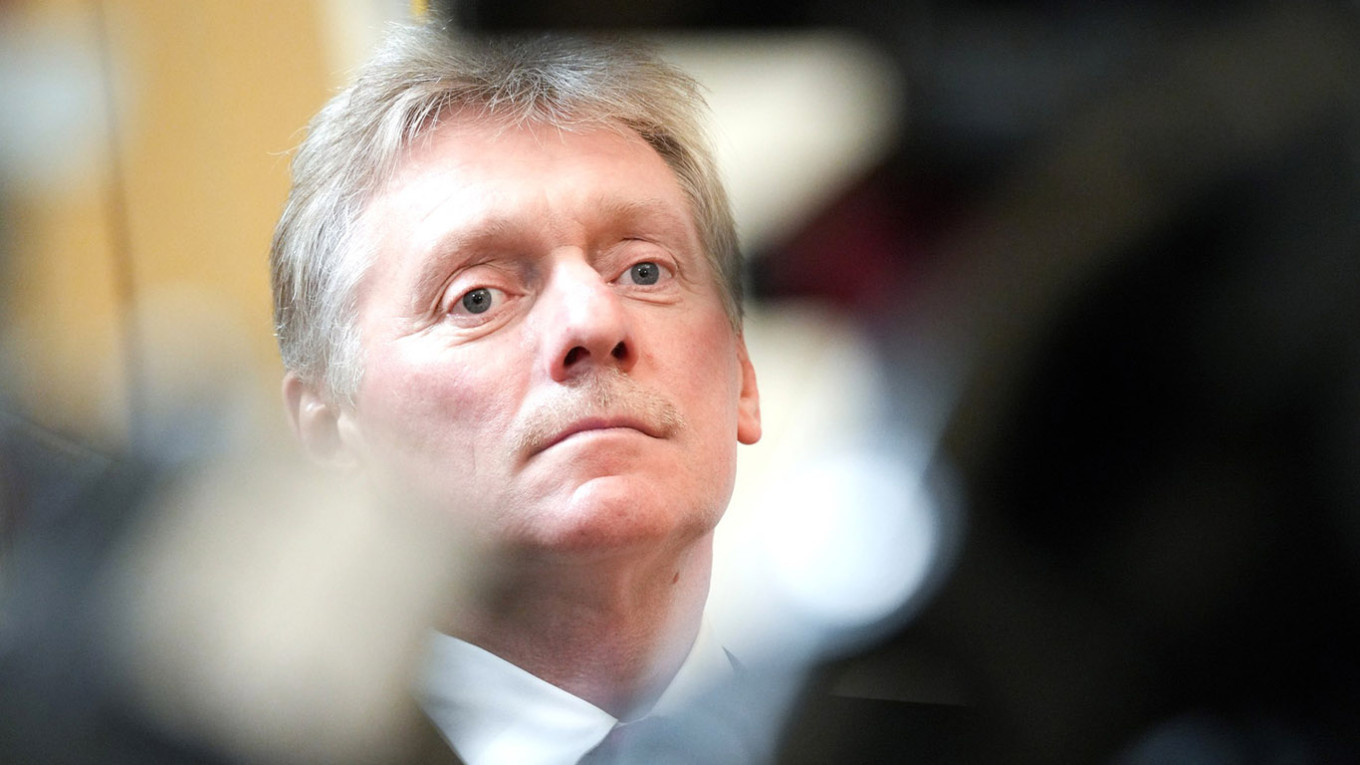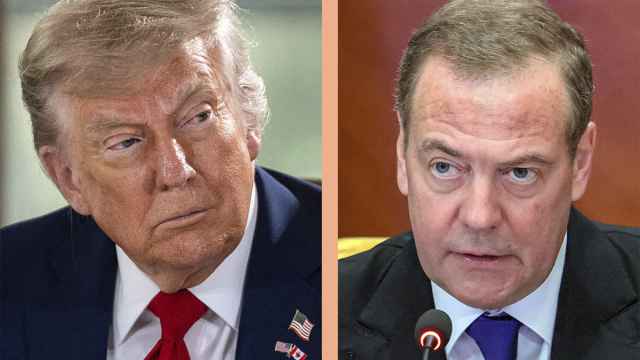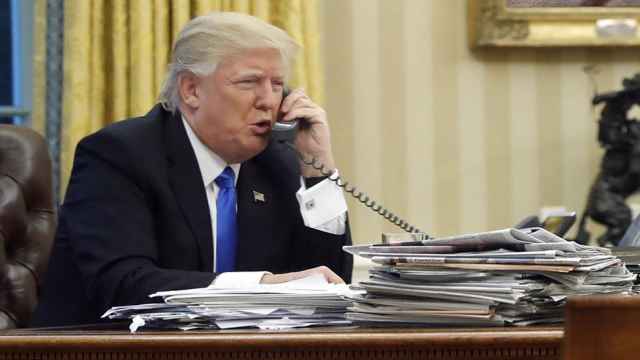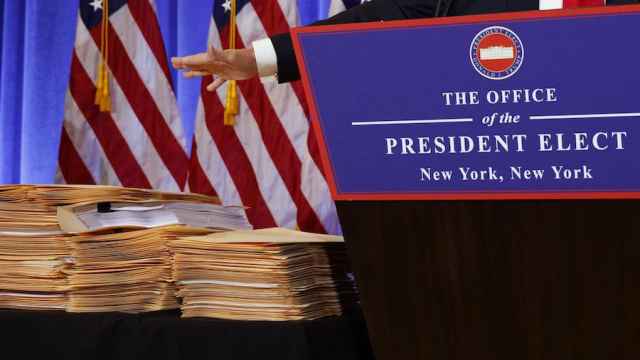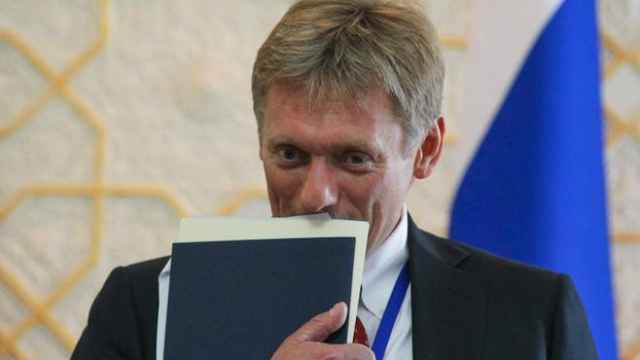The Kremlin on Monday urged caution following U.S. President Donald Trump’s announcement that he had ordered the deployment of two nuclear submarines in response to online comments by Russian Security Council Deputy Chairman Dmitry Medvedev.
“We approach any statements related to nuclear issues with great caution,” top spokesman Dmitry Peskov told reporters. “Russia is firmly committed to nuclear non-proliferation, and we believe that all parties should exercise the utmost restraint when it comes to nuclear rhetoric.”
Trump said Friday that he had ordered the movement of two nuclear submarines after Medvedev, who served as president between 2008 and 2012, made a reference to a hypothetical Soviet doomsday device that could launch a nuclear counterstrike even if the country's leadership was wiped out.
Speaking to reporters on Sunday, Trump said the submarines were “in the region,” without clarifying whether they were nuclear-powered or nuclear-armed or specifying where they had been deployed. U.S. military submarine movements are classified.
Peskov downplayed Trump’s remarks, noting that U.S. submarines are regularly deployed as part of standard operations. Russian President Vladimir Putin has not publicly weighed in on the heightened tensions.
The exchange came as Trump continued to press Moscow to end the war against Ukraine by Aug. 8 or face new sanctions. Trump has also floated the possibility of “secondary tariffs” that would target countries still trading with Russia, including China and India.
When asked about Trump’s comments over the weekend that the U.S. was “totally prepared” for a potential nuclear standoff, Peskov told reporters that “there can be no winners in a nuclear war.”
A Message from The Moscow Times:
Dear readers,
We are facing unprecedented challenges. Russia's Prosecutor General's Office has designated The Moscow Times as an "undesirable" organization, criminalizing our work and putting our staff at risk of prosecution. This follows our earlier unjust labeling as a "foreign agent."
These actions are direct attempts to silence independent journalism in Russia. The authorities claim our work "discredits the decisions of the Russian leadership." We see things differently: we strive to provide accurate, unbiased reporting on Russia.
We, the journalists of The Moscow Times, refuse to be silenced. But to continue our work, we need your help.
Your support, no matter how small, makes a world of difference. If you can, please support us monthly starting from just $2. It's quick to set up, and every contribution makes a significant impact.
By supporting The Moscow Times, you're defending open, independent journalism in the face of repression. Thank you for standing with us.
Remind me later.


